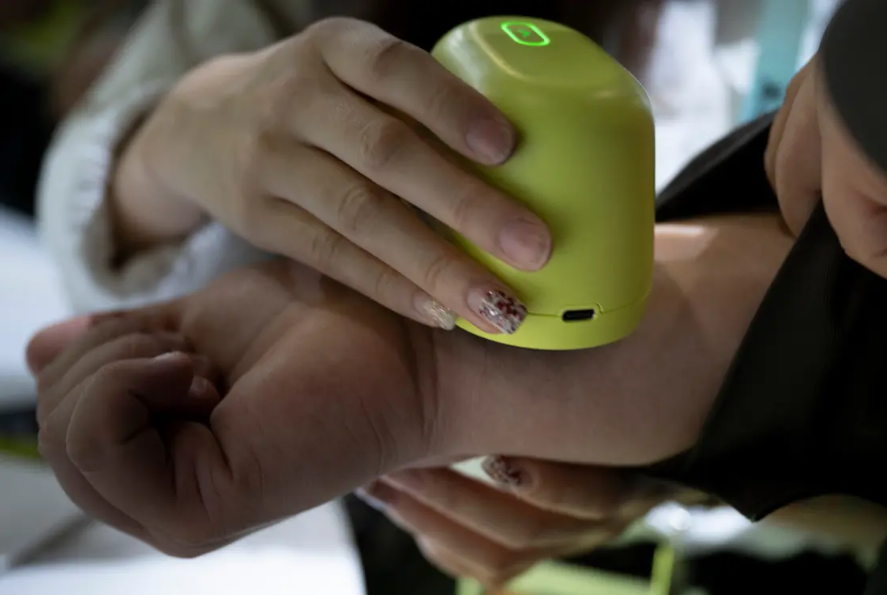
The application serves as a guide for users navigating between a variety of foundation shades and diverse textures, offering personalized recommendations. Developed by Perfect Corp, “Beautify AI” combines generative artificial intelligence and virtual reality to conduct real-time skin analysis, as well as 3D simulations for hairstyles and jewelry. Users receive tailored recommendations based on these analyses. In a study published last May, McKinsey estimated the global beauty industry’s size (skincare, haircare, fragrance, and makeup) to be around $430 billion in 2022, projecting it to reach $580 billion by 2027. Online sales have nearly quadrupled between 2015 and 2022.
Korean company “Prinker,” specializing in temporary tattoos and allowing individuals to apply any desired image to their skin and hair, introduced a new makeup powder printer this year. The printer also incorporates artificial intelligence, featuring a 3D biometric scanner that maps facial characteristics such as contours, shape, and skin tone. Based on this data, the printer recommends suitable eye shadows and blush shades before applying the required powders.
Customization plays a crucial role in the beauty care sector, with a focus not only on skincare but also on hair. L’Oréal unveiled a smart hair dryer for the first time this week at a Las Vegas exhibition, providing personalized solutions based on hair type through an application that analyzes hair and adjusts its power and heat distribution accordingly. The “AirLITE Pro” device uses infrared light to dry hair, preserving moisture and consuming 31% less electricity compared to traditional dryers, according to Adrian Crutian, Director of Enhanced Beauty Development at L’Oréal. The dryer is expected to hit the market in April.
Additionally, another product set to launch later this year is the “Colorsonic” hair coloring device, which operates with reusable cartridges lasting three months.
Leave a Reply